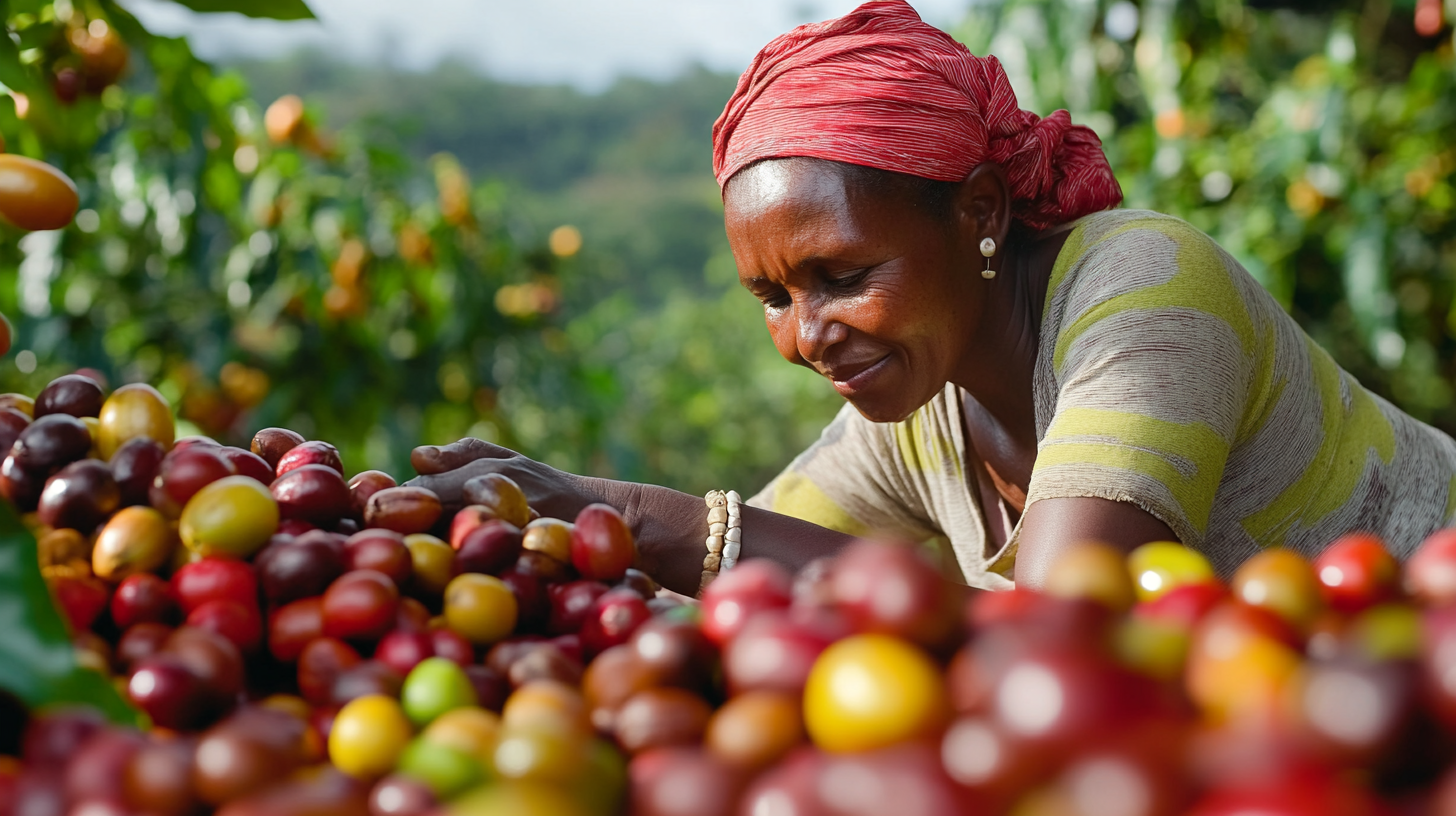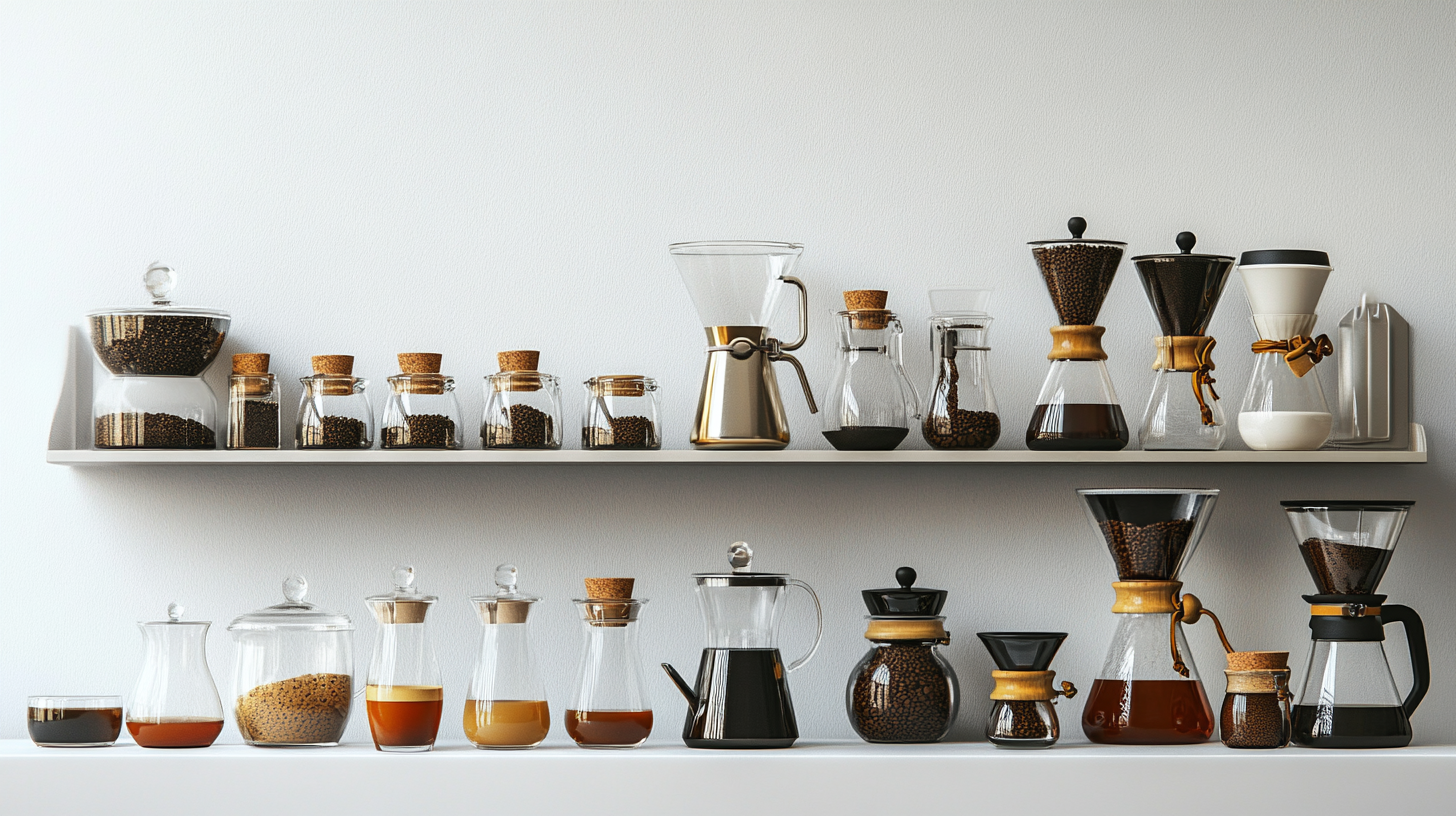Mastering Home Coffee Essentials for Global Buyers to Enhance Your Sourcing Strategy
The latest trends indicate a high demand for home coffee products in the ever-changing coffee business. Meanwhile, global buyers seeking to improve their sourcing strategies should understand what constitutes good home coffee. Starting from the right selection of beans to investing in quality brewing equipment; getting these factors right can hugely affect end-customer satisfaction and the success of any sourcing strategy.
This blog seeks to throw light on the fundamental factors affecting home coffee essentials and, thus, be fruitful for all global buyers interested in improving procurement. Trends, quality, and consumer preferences in these three areas will be examined to see how strategic sourcing in the home coffee segment can create some very sweet opportunities and sustainable relationships within the ever-competitive coffee sector. This way, while giving the buyers knowledge, we can promote a deeper appreciation of home coffee culture and help businesses get prepared to meet the rising demand coming from coffee lovers across the world.

Understanding Global Coffee Market Trends and Consumer Preferences
Interestingly, as the coffee marketplace evolves into the world, one of the most indispensable tenets to sourcing will be consumer preferences coupled with market trends. A recent report suggests that the coffee industry will undergo some radical transformations by 2025: technological innovations in today's health-aligned ingredients will still continuously be accompanied by the growing domination of specialty coffees. Particularly about young consumers, whose coffee choices are growingly influenced by their preference for quality and sustainability, these factors make the industry much more attractive. The annual global coffee consumption in 2023 stands at an impressive figure of 10.62 million tones, with more than 3 billion cups consumed daily, revealing a significant boost per capita, especially in Asia, with an annual average growth rate of per capita coffee consumption of about 15%. There is an increase in demand, especially for ready-to-drink coffees that constitute myriad opportunities for marketers to create better sourcing strategies and improve their position in their area of business. Also, there is the Kopi Luwak market, estimated to be around $7.126 billion in 2023; it is forecasted to post a CAGR of about 4.9% over 2032. This showcases an increasing interest in specialty coffee type products that are more quality-based and unique in flavor. As the tastes of consumers continue to shift into premium categories, companies must strategize on how to adapt to this changing scenario so they can remain relevant in a competitive environment.

Key Coffee Equipment and Tools for Home Brewing Success
This whole brewing thing has gained popularity. Coffee drinkers try to recreate experiences from expensive cafés in their homes. All that is left are the right equipment and tools for brewing that perfect cup of coffee. From extravagant espresso machines to little manual brewers, knowing how to handle one's share of the basic coffee tools can truly up a home brewer's game.
In the hot list of must-have gadgets that home brewers appreciate is the coffee mill, which allows the user to grind their beans to the desired level of fineness without shelling out excess bucks for an electric grinder. When something goes wrong with your main machine, you can always go MacGyver on it with another clever fix. Many of those die-hard enthusiasts have found ingenious alternatives to brewing coffee with their kitchen utensils, thus turning potential disasters into enjoyable brewing experiences.
Being smartly placed in versatile brewing equipment could give an edge to those advancing their sourcing strategies. Good products like portable espresso machines, or however, coffee presses, embody convenience without compromising taste. In this space of the growing demand for unique effective home brew solutions, global buyers should also monitor trends to ensure they are equipped to satisfy customer desires for premium home coffee experiences.

Sourcing Sustainable Coffee Beans: Best Practices for Buyers
Sourcing coffee beans sustainably has been increasingly important for buyers in order to change their sourcing strategy. Affordability as a source will not hinder such emphasis as the demand for coffee continues to grow in the world. Be it the quality, ethical sourcing, or the on-environment impacts, it retains importance in all aspects. Buyers should bring towards partnerships with certified producers that support sustainable practices (shade-grown coffee, organic farming, trade fair principles). The certifications covered in this include quality and also assure fair compensation to farmers, causing healthy contributions to their communities and environment.
Building strong relationships with growers helps in gaining insight into the processes of sourcing. Buyer must actively understand the way farmers plant and work with these problems. This is to ensure that the growing process would lead to better quality control and some exclusivity. Moreover, it'll be very important to integrate a transparent supply chain; that means always knowing the journey a buyer's beans follow form farm to cup while ensuring that sustainability is maintained at every stage.
Investing in sustainable coffee can bring about satisfaction to those consumers who increasingly demand ethically produced products while continuing to nurture a robust and thriving industry. The more buyers actually embrace these green practices, the more the coffee market tends toward sustainability; hence, the good effect should extend beyond businesses to the world as whole. Clearer sourcing shall be paved by transparent, clean, and evergreen processes.

Impact of Specialty Coffee on Home Brewing: Quality vs. Cost
The impact of specialty coffee on home brewing is growing within coffee culture. Consumers place more value on quality than cost. There is a need to know the balance between these two essentials as buyers go further abroad into the unfamiliar territory of coffee sourcing. The reality of specialty coffee lies in its very interesting tastes which come from surfaced processing. Specialty coffee usually means that it's going to cost something extra. But it usually takes the whole brewing experience that much closer to pure nirvana, resulting in a richer and more satisfying cup.
Buyers should think not only of the price when sourcing but also about the quality traits of the beans. There can be very solid payoffs in customer satisfaction and brand loyalty from investments in high-quality specialty coffees. For instance, since they are also purchased sustainably, sustainably sourced beans can appeal to the ethically conscious consumer, but give "paybacks" in terms of quality and environmental compliment. With the business going up and the consumer becoming more clement, it is about how best to make the price-quality decision in developing a sourcing strategy.
Like every other industry, coffee will have its share of quality against cost as the emphasis on that fine balance weights towards equality in medicine, technology, and many others. Knowing how specialty coffees come into the picture will help buyers understand how to keep supply chain benefits while taking advantage of increased consumer demand for extremely fine home brewing experience. It would provide companies with a way to continue competing against each other in the provision of superior products coupled to customer value.
The Role of Technology in Enhancing Home Coffee Experiences
According to the Specialty Coffee Association, which recently released a report on the coffee industry's progress, over 61 perceivable of consumers still gravitate towards the alternative of making coffee at home. Home brewing equipment and technologies that complement the coffee-making process will gain wider acceptance via this increase, thereby necessitating increased global demand. Therefore, it becomes essential to glean insights into these technologies and incorporate them into sourcing strategies for sourcing to gain from them as this trend cuts across a geography.
Smart home coffee machines are among the most beneficial inventions that have transformed the household in terms of coffee consumption. Smart machines brew coffee, and they can further allow personalization of brewing profiles through app connection. While a report by MarketsandMarkets predicted that the global smart coffee machine market would exceed US$4.6 billion by 2025, this indicates that it is an area of significant growth potential for buyers wanting to showcase high-tech products in their offers. With increased convenience and customization reflected in the consumer minds, investments in these technologies are bound to yield strong returns.
The development of precision brewing-how, such as controlling temperature and adjusting grind size, has brought about great improvements in the quality of home-brewed coffee. The National Coffee Association has released a report that shows that of all coffee drinkers, 80 percent would consider shelling out more on equipment that improved their brewing experiences. Therefore, to meet demand in the fast-changing consumer environment and consequently, to create a better home consumption experience that appeals to today's coffee lovers, global buyers should focus on sourcing high-quality brewing gadgets incorporated with such technological advancements.


